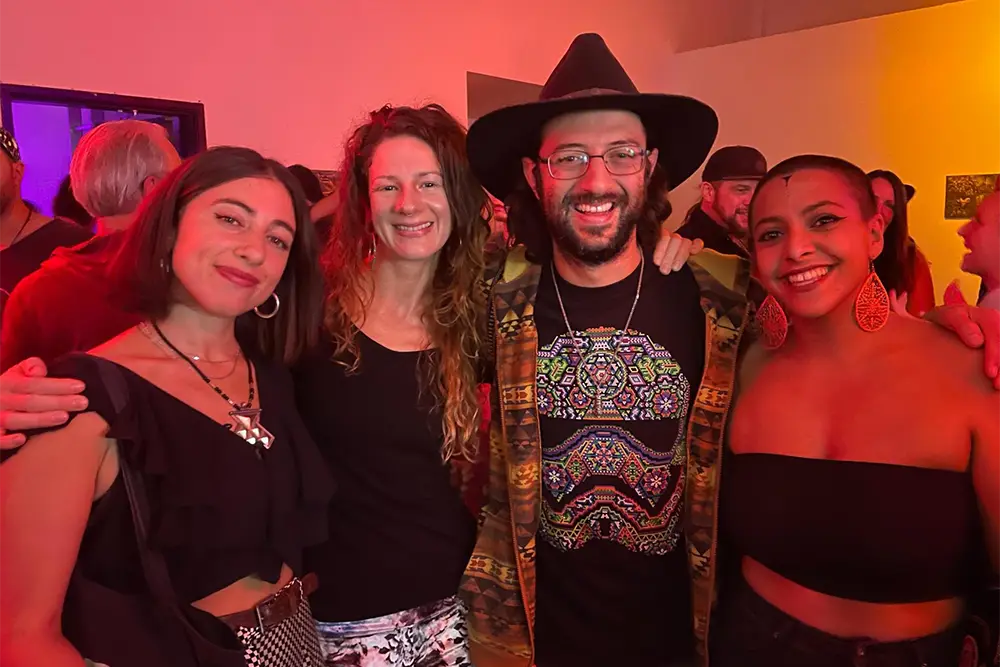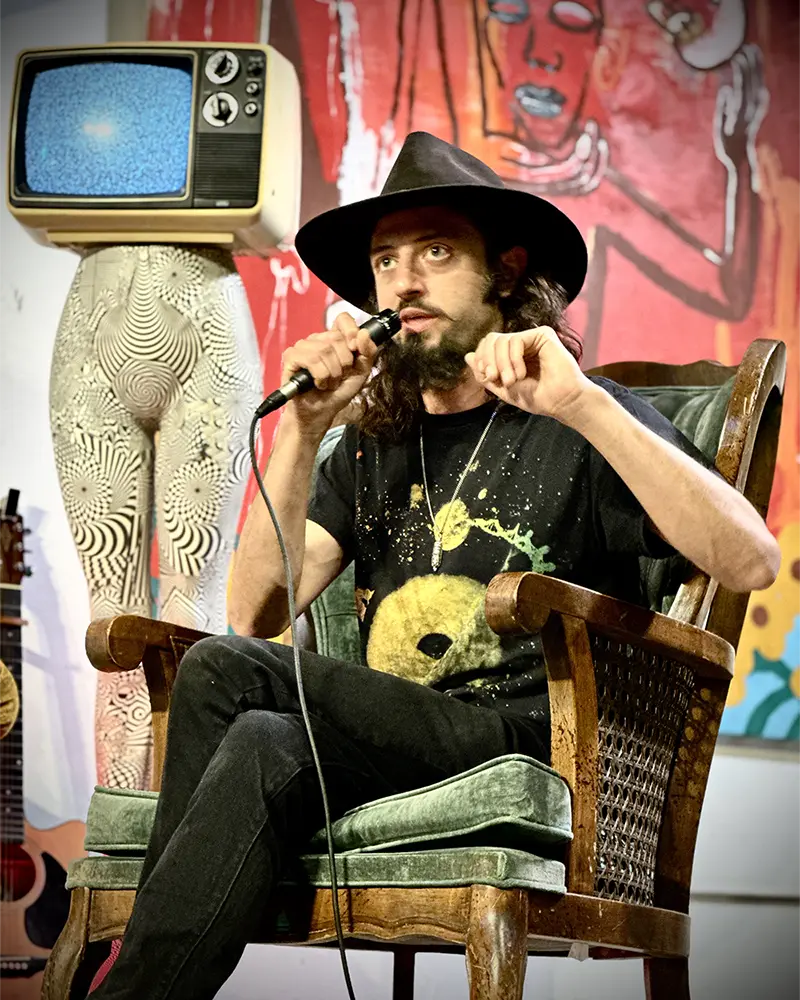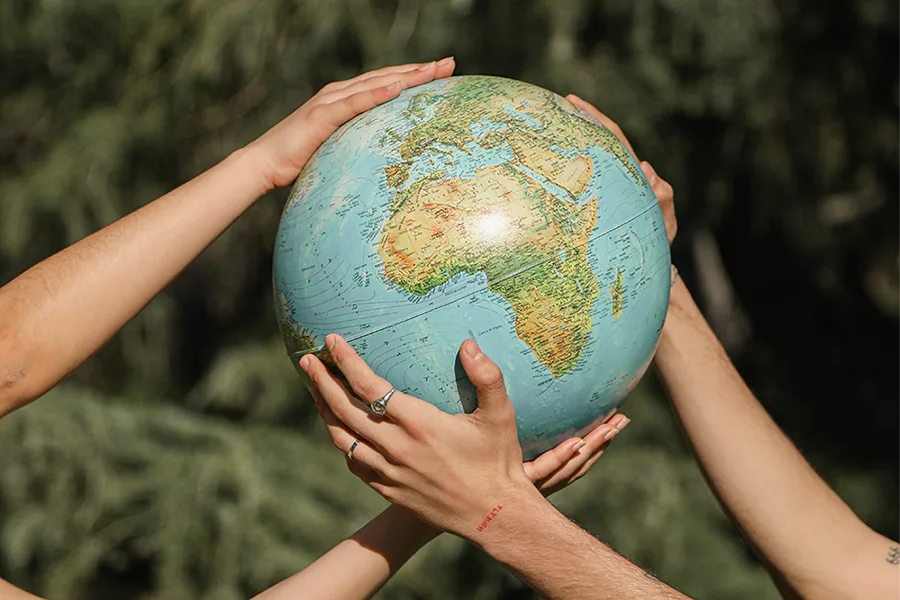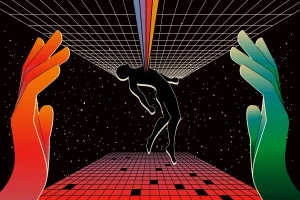“You never change things by fighting the existing reality. To change something, build a new model that makes the existing one obsolete.” – Buckminster Fuller
More than 250 psychedelic societies—grassroots organizations that help build community among psychedelic users, produce events, publish educational materials, promote harm reduction, and host integration circles—have cropped up around the world since 2012. Now, after seven years of planning, the leaders of these groups in the US, UK, Netherlands, Mexico, Czech Republic, and beyond are rolling out a new international organization to help psychonauts—and the people organizing gatherings for them—share resources and find each other.
On May 30, the Global Psychedelic Society (GPS) launched “the world’s largest campaign for local psychedelic community,” says Jessica ‘Jaz’ Cadoch, former executive director of the Montreal Psychedelic Society and one of GPS’s two co-directors. The campaign includes a fundraiser that will help fund the societies and GPS as well as raise awareness about the importance of fostering community among people who are interested in psychedelics.
“Like mushrooms emerging after the rain, the global network of psychedelic societies is rising up as a public forum and voice for all who appreciate psychedelics,” reads the GPS manifesto.
“We’re talking about a culture shift here,” says Mike Margolies, GPS co-director, Psychedelic Seminars founder, and DoubleBlind contributor.

Shifting culture is written into the GPS’ founding documents. Its core values include accountable leadership, regenerative stewardship, and inclusive community. Members are inspired by the notion of “Holacracy” and the “Teal” model outlined in Frederic Laloux’s 2014 book Reinventing Organizations: a pragmatic alternative to consensus-based decision-making with a management structure rooted in worker autonomy and peer relationships. At the 2023 Psychedelic Science Conference in Denver—billed as the largest-ever psychedelic conference with a projected 7000 attendees—the GPS will host collective problem-solving events for psychedelic society leaders to maximize the campaign’s impact.
A group of psychedelic society leaders, including Margolies, started exploring the concept of a global organization at the 2016 Beyond Psychedelics conference in Prague. When the COVID-19 pandemic hit in 2020, Margolies scheduled regular Zoom meetings to collaborate and figure out how their communities would survive the disaster.
Psychedelic society members face similar kinds of challenges, says Margolies. They’re often hopeful volunteers who must make their activities sustainable before succumbing to burnout. “Nearly every society is struggling for resources,” he says.
Every group must figure out the most effective business models and legal structures based on its location. They must also comply with local substance ordinances and policies at institutions like venues and banks. “Just having the word ‘psychedelic’ in your name can be problematic for getting a bank account,” says Caitlin Riley, an Austin-based co-director at PsyTexas. The GPS is gathering solutions to these problems and more in a Starter Kit that also includes a history of psychedelic societies, “Structure 101,” and general “Words of Advice” to help folks who have already started societies—and those who would like to.
How to Grow Shrooms Bundle
Take Both of Our Courses and Save $90!
The GPS is part of a global cultural trend toward community care as a response to climate destabilization, unprecedented mental illness, and political unrest. It’s one of many communities inspired by principles of non-hierarchical leadership and mutual aid founded during the pandemic. Dean Spade, author of Mutual Aid: Building Solidarity During this Crisis (and the Next) argues, “mutual aid strategies will be the most effective way to support vulnerable populations to survive, mobilize significant resistance, and build the infrastructure we need for the coming disasters.”
Lost Connections author Johann Hari argues that community is one of the most effective treatments for depression, anxiety, and loneliness. Psychedelic integration circles, gatherings where people can process their psychedelic experiences together with facilitated support, a cornerstone of psychedelic societies, provide community in addition to the mental health benefits of psychedelic therapy.
“I see community as the foundation of the whole thing,” says Margolies. “If we are really thinking about the psychedelic future we want, one trajectory is a future where a bunch of for-profit pharmaceutical companies with investors and patented molecules have medical FDA-approved psychedelics and there is legal access to most psychedelics, but only if you get them through your FDA-approved, patent-holding company. That is not the vision of the psychedelic future I am here to create.”
“I’m here for collective liberation. I’m here for ending the Drug War. Yes, I’m here for psychedelic therapy to be accessible, but that can’t be the only container. I’m here for community healing circles. I’m here for things that resemble indigenous traditions and our own modern takes that are culturally applicable to us. We need a plurality of options for psychedelics, and the base underlying the culture shifts we need to get there is community.”
The challenge of shifting global attitudes toward psychedelics may seem daunting. But in humanity’s 190,000-year history, Margolies’ vision is more a return to normalcy than an unprecedented future.

Humans have used psychedelic plants for millennia. The US government—which then inspired a global Drug War—started labeling them as illegal drugs less than 60 years ago. Lawyers and activists are eroding these drug policies in multiple cities, states, and countries. Scientists, doctors, and therapists are navigating legal gray areas to incorporate psilocybin, ketamine, and MDMA into their research and practice. Religious groups are winning their sacred rights to journey on ayahuasca and psilocybin. Today, psychedelics are re-entering mainstream Western culture at an unprecedented rate.
“We have a three-fold paradigm shift in front of us right now: medical, political, and cultural,” says Cadoch. “We need all three prongs working together to shift the narrative, but the cultural piece is probably the most important. The political and medical institutions tell the world what is and isn’t acceptable from the top down. But cultural change is happening from the bottom up. Culture creates what I call ‘fertile soil’ to catch people who have their first psychedelic experience and wonder, ‘Oh my god, where do I go next?’ And the answer is to fall into community.”
Learn more about the Global Psychedelic Society’s vision for a psychedelic future on their website. Find a psychedelic society near you on this map, and donate to the fundraiser here.

DoubleBlind is a trusted resource for news, evidence-based education, and reporting on psychedelics. We work with leading medical professionals, scientific researchers, journalists, mycologists, indigenous stewards, and cultural pioneers. Read about our editorial policy and fact-checking process here.

DoubleBlind Magazine does not encourage or condone any illegal activities, including but not limited to the use of illegal substances. We do not provide mental health, clinical, or medical services. We are not a substitute for medical, psychological, or psychiatric diagnosis, treatment, or advice. If you are in a crisis or if you or any other person may be in danger or experiencing a mental health emergency, immediately call 911 or your local emergency resources. If you are considering suicide, please call 988 to connect with the National Suicide Prevention Lifeline.




